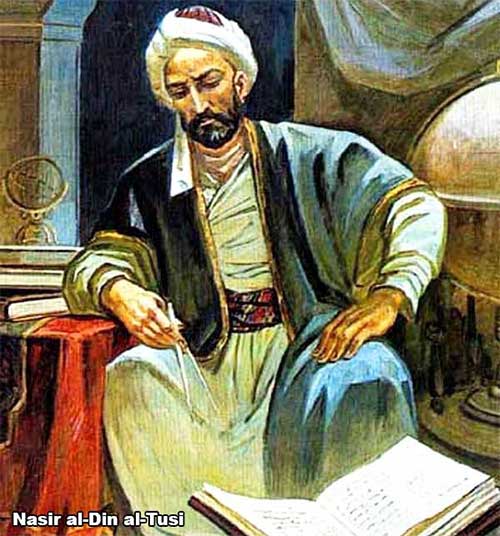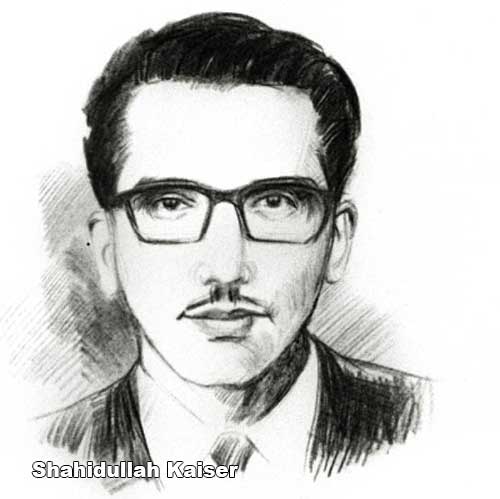
Nasir Al-Din Al-Tusi stands as one of the most influential figures in the history of science, philosophy, and mathematics. His groundbreaking contributions spanned multiple disciplines, leaving an indelible mark on both Islamic and global intellectual traditions. Born in 1201 in Tus, a city in modern-day Iran, Nasir Al-Din Al-Tusi emerged as a polymath whose work bridged ancient knowledge and the scientific advancements of his time. His achievements in fields like astronomy, mathematics, and philosophy have earned him recognition as a pivotal figure in the development of human understanding. From Nasir Al-Din Al-Tusi's contribution to mathematics to his revolutionary ideas in trigonometry, his legacy inspires scholars and researchers today.

The significance of Nasir Al-Din Al-Tusi extends beyond his era, as his works laid the foundation for future discoveries in science and academia. His influence reached far beyond the Islamic world, impacting European Renaissance thinkers who built upon his ideas. Understanding what Nasir Al-Din Al-Tusi was known for reveals not only his intellectual brilliance but also his role as a bridge between cultures and civilizations. This article delves into his life, contributions, and enduring impact, exploring how his innovations shaped the course of history.
Early Life and Education of Nasir Al-Din Al-Tusi
Nasir Al-Din Al-Tusi was born into a family with deep scholarly roots, which played a significant role in shaping his intellectual journey. His father, Muhammad ibn Qasim, was a respected jurist and theologian who instilled in him a love for learning from an early age. Growing up in Tus, a hub of academic activity during the medieval period, gave Al-Tusi access to a wealth of knowledge and resources. He immersed himself in the study of various disciplines, including mathematics, astronomy, philosophy, and theology, under the guidance of prominent scholars of the time.
Al-Tusi's education was marked by a rigorous exploration of classical texts, particularly those of Greek philosophers like Aristotle and Ptolemy. These works formed the foundation of his intellectual pursuits, inspiring him to delve deeper into the mysteries of the natural world. His early exposure to diverse fields allowed him to develop a holistic understanding of science and philosophy, setting the stage for his later achievements. By the time he reached adulthood, Nasir Al-Din Al-Tusi had already established himself as a prodigious thinker with a keen interest in advancing human knowledge.
Nasir Al-Din Al-Tusi's Contribution to Mathematics
One of the most remarkable aspects of Nasir Al-Din Al-Tusi's legacy lies in his profound contributions to mathematics. His work in this field not only expanded the boundaries of mathematical knowledge but also laid the groundwork for future advancements. Among his most celebrated achievements is his pioneering work in trigonometry, which earned him widespread acclaim. Nasir al-din al-tusi trigonometry introduced innovative concepts that transformed the study of angles and their relationships, making it an indispensable tool for astronomers and mathematicians alike.
Al-Tusi's treatise on trigonometry, titled "Treatise on the Quadrilateral," remains a cornerstone of mathematical literature. In this work, he developed a systematic approach to spherical trigonometry, addressing problems related to celestial navigation and planetary motion. His methods were so advanced that they influenced both Islamic and European scholars for centuries. Additionally, Al-Tusi's contributions extended to algebra, where he explored solutions to cubic equations and refined existing methodologies. These innovations underscored his ability to synthesize theoretical knowledge with practical applications, solidifying his reputation as a trailblazer in mathematics.
Nasir Al-Din Al-Tusi's Significance in Astronomy
Nasir Al-Din Al-Tusi's significance in the field of astronomy cannot be overstated, as his work revolutionized the way celestial phenomena were studied and understood. One of his most notable inventions, the Tusi couple, demonstrated his ingenuity and deep understanding of planetary motion. This geometric model explained the apparent oscillatory movement of planets, resolving long-standing challenges posed by earlier astronomical systems. The Tusi couple became a fundamental concept in the development of the Copernican heliocentric model, showcasing Al-Tusi's lasting influence on the evolution of astronomy.
In addition to his theoretical contributions, Al-Tusi played a key role in establishing the Maragheh Observatory, one of the most advanced astronomical institutions of its time. Under his leadership, the observatory became a hub for scientific research, attracting scholars from across the Islamic world and beyond. Here, Al-Tusi and his team conducted meticulous observations of the stars and planets, compiling data that would inform future discoveries. His efforts not only advanced the field of astronomy but also highlighted the importance of empirical evidence in scientific inquiry. What did Nasir al-din al tusi invent goes beyond individual tools or models; it encompasses an entire framework for understanding the cosmos.
Nasir Al-Din Al-Tusi Quotes Reflecting Wisdom and Insight
Nasir Al-Din Al-Tusi's quotes offer a glimpse into the mind of a philosopher who sought to harmonize science, religion, and ethics. His writings often reflect a deep commitment to truth and a belief in the interconnectedness of all knowledge. One of his well-known statements emphasizes the pursuit of wisdom as a lifelong endeavor, urging individuals to seek knowledge not only for personal gain but for the betterment of society. Such insights reveal Al-Tusi's conviction that intellectual growth should align with moral responsibility.
Another notable quote highlights his view on the relationship between faith and reason. Al-Tusi believed that science and religion were complementary rather than contradictory, advocating for a balanced approach to understanding the universe. His words continue to resonate with readers, offering timeless lessons on the importance of curiosity, humility, and perseverance. These philosophical reflections add depth to his legacy, reminding us that Nasir Al-Din Al-Tusi was not only a scientist but also a thinker deeply engaged with the human condition.
Nasir Al-Din Al-Tusi Died A Life Remembered
The question of how Nasir al-din al-tusi died is intertwined with the final chapter of a life dedicated to scholarship and service. Nasir Al-Din Al-Tusi passed away in 1274 in Baghdad, leaving behind a legacy that transcended his lifetime. His death marked the end of an era, but his contributions ensured that his influence would endure for generations. Al-Tusi spent his final years continuing his research and mentoring younger scholars, ensuring that the torch of knowledge would be carried forward.
Nasir al-din al-tusi's significance is evident in the way his works were preserved and studied long after his passing. Manuscripts of his writings were translated into Latin and other languages, reaching European scholars who built upon his ideas during the Renaissance. His death did not diminish his impact; instead, it cemented his place as a pivotal figure in the history of science and philosophy. Al-Tusi's life serves as a testament to the enduring power of intellectual curiosity and dedication to the pursuit of truth.
Nasir Al-Din Al-Tusi's Enduring Influence Across Cultures
The legacy of Nasir Al-Din Al-Tusi extends far beyond the borders of the Islamic world, influencing scholars and thinkers across continents and centuries. His works served as a bridge between ancient knowledge and the scientific advancements of later eras, shaping the intellectual landscape of both the East and the West. European Renaissance figures, such as Copernicus and Kepler, drew inspiration from Al-Tusi's innovations in astronomy and mathematics, incorporating his ideas into their groundbreaking theories. This cross-cultural exchange underscores the universal relevance of his contributions and highlights the interconnected nature of human progress.
Within the Islamic world, Nasir Al-Din Al-Tusi's significance was felt not only in academia but also in the broader cultural sphere. His efforts to integrate science and philosophy with religious thought resonated deeply with scholars seeking to reconcile faith and reason. Institutions like the Maragheh Observatory became symbols of intellectual achievement, fostering collaboration and innovation. Even today, Al-Tusi's ideas continue to inspire new generations of researchers and thinkers, proving that his impact remains as vibrant and relevant as ever.
Celebrating the Genius of Nasir Al-Din Al-Tusi
The brilliance of Nasir Al-Din Al-Tusi lies in his unparalleled ability to transcend disciplines and eras, leaving an indelible mark on the world of science and philosophy. From Nasir al-din al-tusi's contribution to mathematics to his revolutionary advancements in astronomy, his work exemplifies the power of curiosity and intellectual rigor. What Nasir al-din al-tusi was known for extends beyond his specific achievements; it encompasses a mindset that values discovery, collaboration, and the pursuit of truth. His legacy serves as a reminder of the transformative potential of knowledge when applied with purpose and vision.
As we reflect on his life and accomplishments, it becomes clear that Nasir Al-Din Al-Tusi's significance is timeless. His ideas continue to inspire, bridging gaps between cultures and generations. Whether through his groundbreaking trigonometric models or his philosophical reflections, Al-Tusi's contributions remain a beacon of human ingenuity. By celebrating his genius, we honor not only his achievements but also the enduring spirit of inquiry that drives humanity forward.
#NasirAlDinAlTusi



